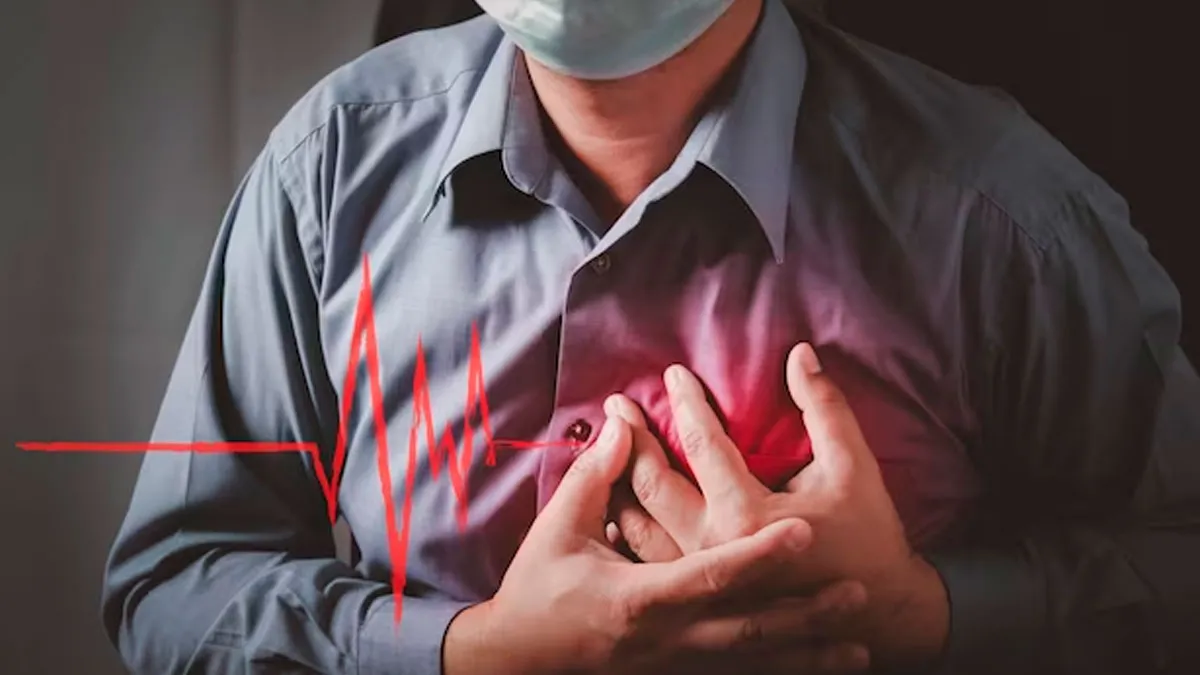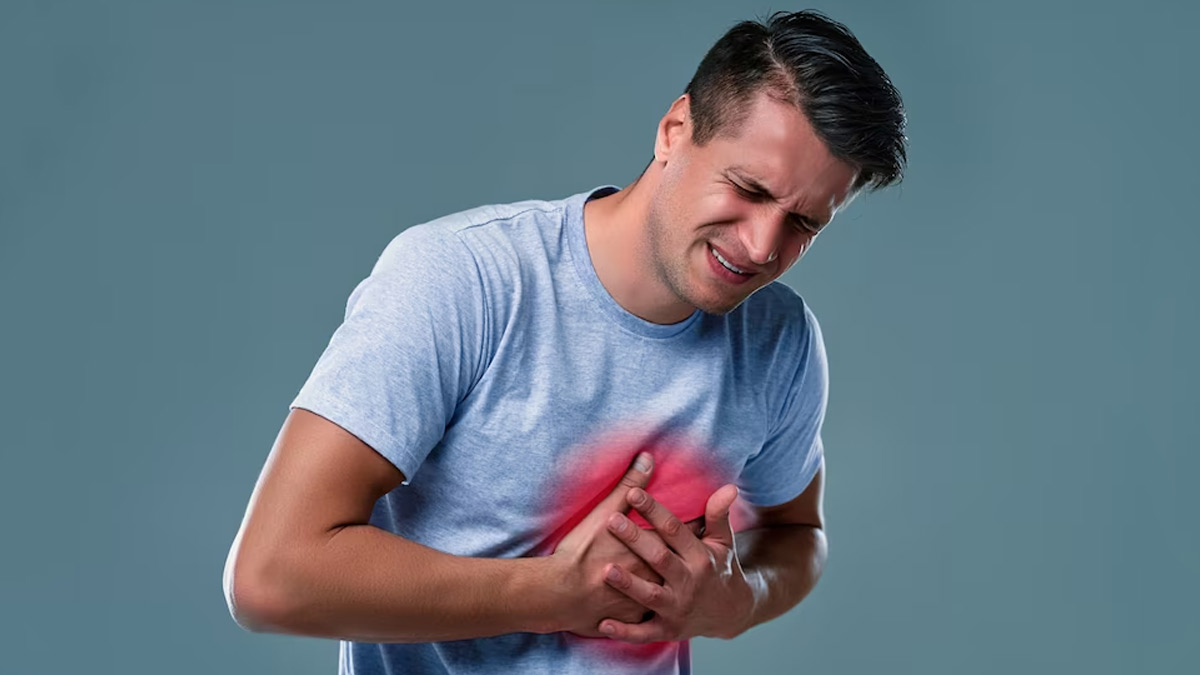
When sudden chest discomfort strikes, it’s natural to panic. Is it a heart attack or just harmless gas? The two conditions can sometimes mimic each other, leaving many confused and anxious. To clear the fog around this common health dilemma, we spoke to Dr. Shrey Kumar Srivastav, General Physician and Senior Consultant at Sharda Hospital, Noida, who shared crucial insights on how to distinguish between the two.
Table of Content:-
Overlapping Symptoms: Why Confusion Happens
Chest pain or discomfort often triggers immediate worry about heart health, but not every ache is a cardiac emergency. Gas or indigestion can cause sharp pains, pressure, or burning sensations in the chest area that closely resemble heart attack symptoms.
Dr. Srivastav explains, “Both heart attacks and gas-related chest discomfort can cause chest pain, but their underlying causes and risk levels are very different. Recognising the key differences can save lives and prevent unnecessary panic.”

Also Read: How Much Oil Should You Ideally Consume In A Day To Keep Your Health In Check? Expert Weighs In
Heart Attack vs Gas: Understanding the Key Differences
1. Nature and Location of Pain
Heart Attack: The pain often feels like intense pressure, squeezing, or heaviness in the centre or left side of the chest. It may radiate to the jaw, neck, shoulders, arms, or back.
Gas: Pain from gas or indigestion is usually sharp, stabbing, or burning and is localised more around the upper abdomen or just beneath the breastbone.
2. Duration and Trigger
Heart Attack: The pain lasts more than a few minutes and often comes on suddenly without a clear trigger. It may worsen with physical activity and doesn’t improve with changes in posture.
Gas: Gas pain can fluctuate in intensity and is often related to eating, swallowing air, or indigestion. It may improve after burping or passing gas.
3. Associated Symptoms
Heart Attack: Accompanied by symptoms like shortness of breath, sweating, nausea, dizziness, or a feeling of impending doom.
Gas: May be accompanied by bloating, belching, or a sensation of fullness, but rarely causes sweating or dizziness.

Also Read: National Dengue Day 2025: Expert Shares Go-To Guide To Quick Dengue Recovery!
When to Seek Immediate Medical Help
Dr. Srivastav stresses, “If you experience chest pain with any signs of a heart attack — especially if you have risk factors like high blood pressure, diabetes, smoking, or family history — seek emergency medical attention immediately. It’s better to be cautious because early treatment can be lifesaving.”
Tips to Reduce Gas and Indigestion
For those prone to gas, lifestyle adjustments can help:
Eat smaller, more frequent meals.
Avoid carbonated drinks and gas-producing foods like beans, cabbage, and fried items.
Chew food thoroughly and avoid swallowing air by eating slowly.
Manage stress through relaxation techniques such as yoga or meditation.
Note that chest pain is never something to ignore. While gas and heart attacks can feel similar, understanding the differences helps you respond appropriately. When in doubt, always prioritise your heart health by consulting a healthcare professional without delay.
Also watch this video
How we keep this article up to date:
We work with experts and keep a close eye on the latest in health and wellness. Whenever there is a new research or helpful information, we update our articles with accurate and useful advice.
Current Version
